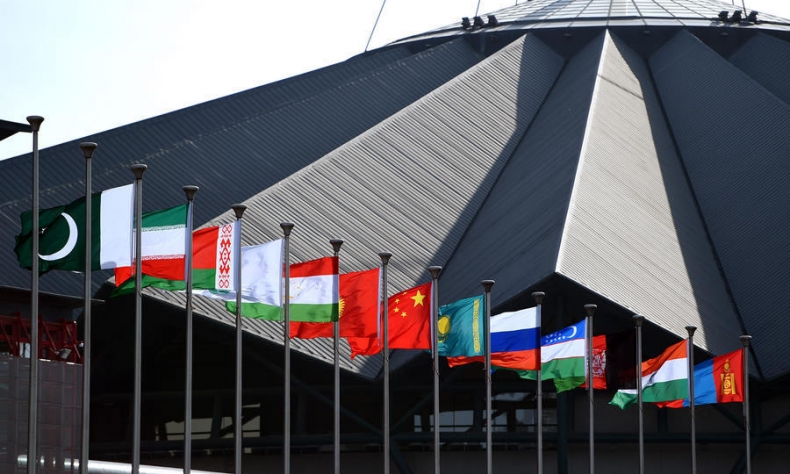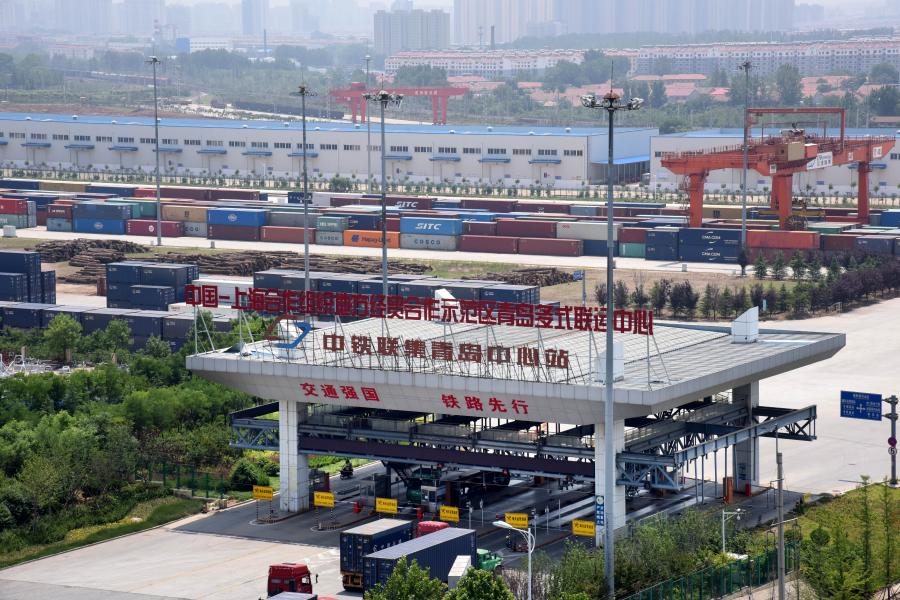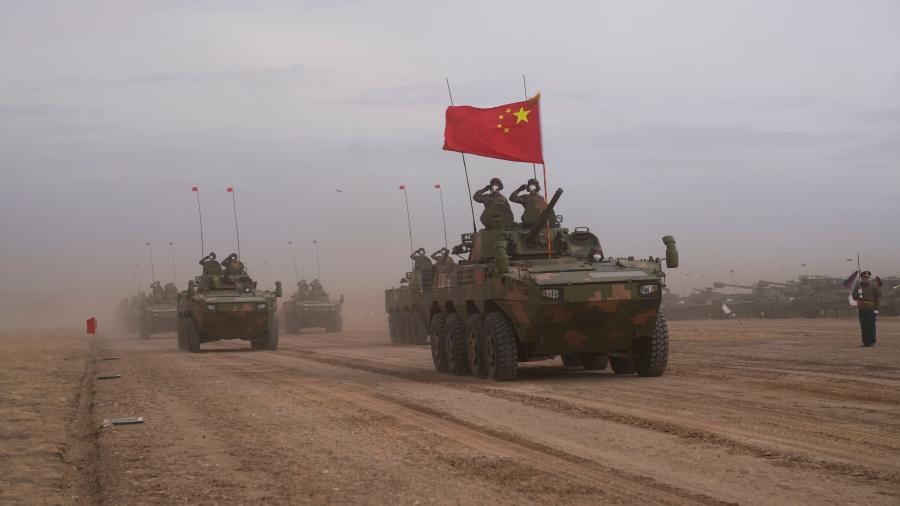Stronger Ties Through SCO

The SCO ideals of shared prosperity and mutual respect with emphasis on economic ties, comprehensive security, and people-to-people contact can push India-China cooperation forward.
The 2020 border clashes between India and China have negatively affected not only their economic and political relations, but more importantly, goodwill and trust built over years. As neighbouring countries with vast populations and diverse interests, it is natural for problems in bilateral relations to emerge. The current downturn in the relationship, however, is not in the interest of either country or the world at large. Cooperation between India and China is a must for peace and stability in the region.
Although India and China work together through platforms like BRICS, RIC (Russia-India-China), and AIIB (Asian Infrastructure Investment Bank), they have no specific mandate or mechanism to address bilateral issues. The Shanghai Cooperation Organization (SCO) has been a valuable platform in terms of facilitating meaningful cooperation and trust in India-China relations. The SCO spirit and its guiding principles have immense potential to foster economic collaboration, security assurances, and promotion of people-to-people exchange which should help ease border tensions and help fights against pandemics such as COVID-19.

SCO spirit and objectives
The “Shanghai Spirit” of shared development and common prosperity and the SCO framework have been useful in addressing regional and bilateral issues and ensuring economic cooperation between India and China. The guiding principles of the SCO include mutual respect of sovereignty, independence, territorial integrity of states and inviolability of state borders, non-aggression, non-interference in internal affairs, non-use of force or threat of its use in international relations, equality of all member states, and peaceful settlement of disputes between the member states. Both countries have remained dedicated to cultivating these values over the years through various treaties and initiatives.
The objectives and goals of the SCO include strengthening mutual trust and neighbourliness among the member states, promoting effective cooperation in politics, trade and economy, maintaining peace, security and stability in the region, and jointly combating terrorism, fighting illicit narcotics and arms trafficking, and building a democratic, fair and rational new international political and economic order in the spirit of the Five Principles of Peaceful Coexistence which have been advocated since the 1950s.
If India and China adhere to the SCO spirit to realize these objectives, a cooperative and mutually beneficial relationship will flourish.
Regional security and stability
India and China are both concerned with the challenges to regional security and stability posed by terrorism and separatism.
The SCO has put special emphasis on dialogue for safeguarding regional security by addressing extremism, separatism and terrorism, which represent a major threat in the region. The SCO Regional Anti-Terrorist Structure established in Tashkent in 2004 has conducted joint anti-terrorism exercises, created a database for counter-terrorism operations, and assisted in extraditing extremists. Regional anti-terrorism cooperation can reduce the capabilities, movements, and smuggling options of extremist elements.

The SCO provides a viable framework for facilitating regional stability and security through cooperation between India, China, and Central Asian countries. This is essential for the unity and rise of Asia for which India and China both aspire.
Space for economic cooperation
The SCO has huge potential to facilitate comprehensive economic cooperation between India and China because it emphasizes regional bonding and economic integration. It encourages regional trade and investment through economic collaboration and through platforms like the Belt and Road Initiative and BRICS. The SCO has been involved in many connectivity projects with Indian participation including the International North-South Transport Corridor connecting the European Union through Russia and Iran to India and ASEAN and the Vladivostok-Chennai sea lane of communication connecting India to Russia’s Far East.
The role of the emerging digital economy as an engine for greater socio-economic cooperation in the SCO region has been highlighted by recent SCO meetings. India convened the first virtual gathering of the SCO’s Consortium of Economic and Analytical Centres in August 2020. India also proposed setting up the SCO Special Working Group on Innovation and Start-ups and hosted the first SCO Young Scientists Conclave in November 2020. Sectors such as education, healthcare, and small and medium enterprises are specifically covered by Indian digital technology initiatives in the SCO.
People-to-people contact
The SCO People’s Forum attaches great importance to enhancing people-to-people contact. Since the 2018 event in northwestern China’s Xi’an City, themed “promoting regional peace and cooperation, building a community with a shared future for humanity” has been an inspiration for all parties to enhance mutual understanding, deepen friendship, and strengthen cooperation. The June 2021 Forum in China’s central city of Wuhan emphasized the need for mutual learning between civilizations, good-neighbourliness and friendship among countries, bilateral and multilateral exchange and cooperation in culture, education, academic research, sports, media, tourism, science and technology, health, traditional medicine, folk arts and crafts, and environmental protection.

A trust deficit has been a lingering issue hindering India-China bilateral relations. People-to-people contact can open new channels for communication, explore broader topics for discussion, and create more positive impressions. During times of crises, some media outlets go negative and whip up aggressive nationalism. Deeper engagement between the media and academia is a goal of the SCO. Cultural industries, including tourism, entertainment, publications, and internet services, can all promote and enhance each other. In recent years, films from both China and India have enjoyed enthusiastic receptions from the other. The SCO People’s Forum can move such contact to the next step and facilitate mutual trust and cooperation between the two countries.
Fighting the pandemic
The 2020 SCO Summit emphasized the need for cooperation to strengthen the response of SCO members to the threat of COVID-19. Both India and China proposed a SCO structure for traditional medicine to augment the medical response to the pandemic, which was endorsed by the meeting. The summit adopted a statement on the “Joint Response Efforts” against COVID-19, listing national efforts by its members to respond. The meeting also resolved to work with the WHO on providing a platform for international cooperation to ensure easy and affordable access to vaccines and better future responses. The pandemic continues to threaten human life and can be better fought through India-China cooperation.
The SCO is a valuable platform with clear objectives and an ideal spirit to ensure cooperation between India and China. The SCO ideals of shared prosperity and mutual respect with emphasis on economic ties, comprehensive security, and people-to-people contact can push India-China cooperation forward. The SCO mechanism ensuring meetings of leaders and officials at the highest level, at least annually if not more frequent, will blunt the impact of future unforeseen crises.
The author is an associate professor in the Department of Political Science of the University of Kerala in India.
Source: China Pictorial
 Facebook
Facebook
 Twitter
Twitter
 Linkedin
Linkedin
 Google +
Google +










